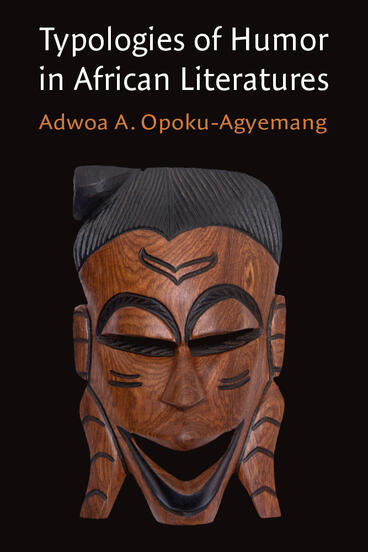Typologies of Humor in African Literatures
Examining humor and four of its archetypes in twentieth century African literature
Description
Typologies of Humor in African Literatures is a study on the use of humor and comedy in African literary texts across the twentieth century. Despite humor being omnipresent in African societies and their literatures, discussions of contemporary African literature have largely dismissed it as being too lighthearted compared to the more serious issues of post-colonial history, class inequality, and politics. Adwoa A. Opoku-Agyemang, while acknowledging the seriousness of the subject matter, establishes humor as an essential component of African fiction.
The book analyzes four comedic archetypes: the Trickster, who is unapologetically amoral and entertaining; the Mimic, whose everyday dealings exude ambiguity; the Interpreter, who demonstrates the comic potential of language differences while showing how a single message can mean contrasting things; and the Deviant, who throws norms into question all the while reinforcing them. These character types and the humor they produce present a constant pursuit of balance between contrasting worldviews and frames of reference within the imbrication of different languages, classes, political factions, genders, and (un)officialdoms. The product of these rowdy relations are people who take the weirdness and run with it to generate diegetic and intradiegetic laughs. By analyzing Francophone and Anglophone African writing and how it overlays local languages, Opoku-Agyemang contributes a uniquely African voice to the primarily Western-dominated field of humor studies.
Adwoa A. Opoku-Agyemang teaches at Ashesi University.
Reviews
"Typologies of Humor in African Literatures makes an original and insightful contribution to African literary studies. It’s the sort of book that makes one wonder why it hadn’t been written earlier, and it is both timely—in its rejection of African literature’s monochromatically ‘urgent’ or somber affect—and promises to remain relevant for years to come.”
- Jeanne-Marie Jackson
–—Jeanne-Marie Jackson, Johns Hopkins University
“This is an important book as the first substantive work that theorizes the place of humor in colonial and contemporary Africa, through the tropes of the trickster, mimic, deviant, and interpreter. The importance of this book lies in the fact that it addresses an under-theorized aspect of African literature and cultural studies–humor studies. The author fills this academic void by engaging with various genres of literary texts across many languages, time periods and geographical focuses.”
- Shola Adenekan
—Shola Adenekan, Ghent University

